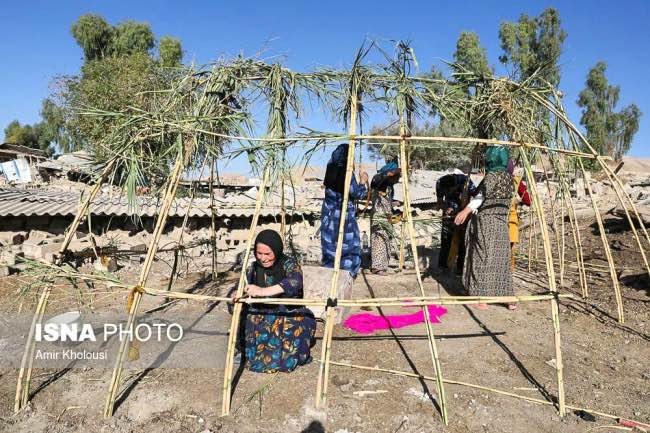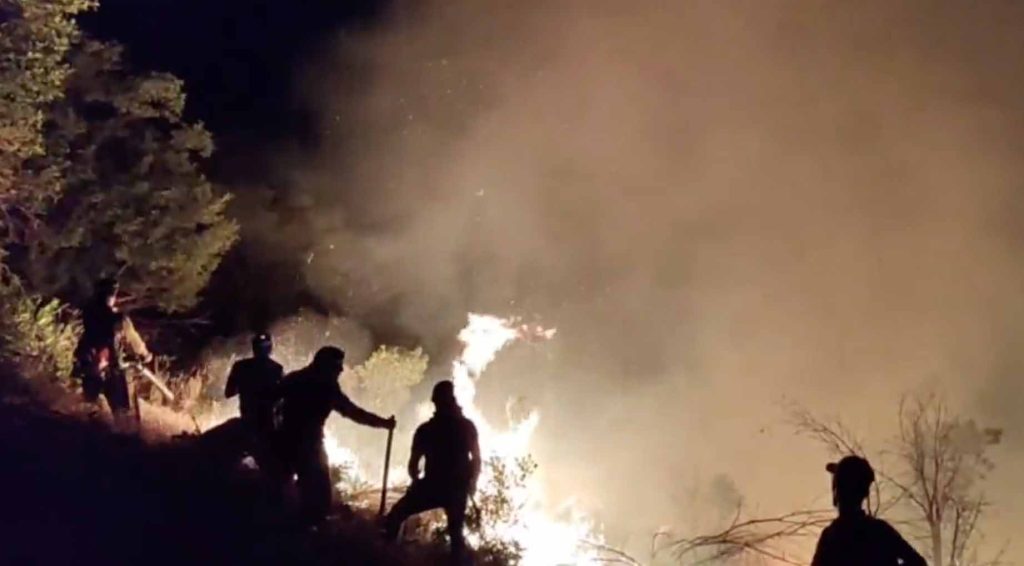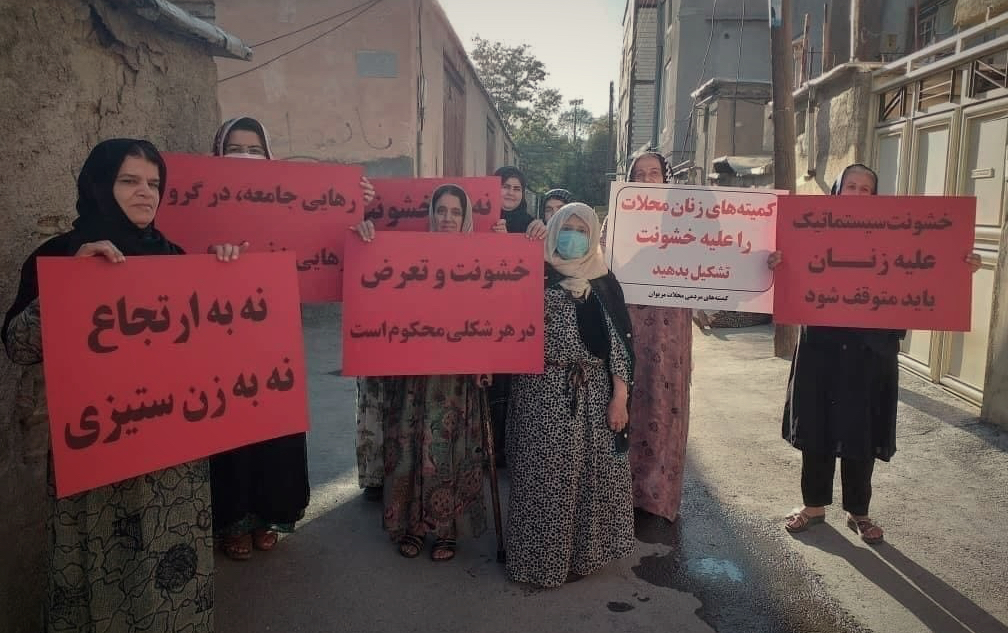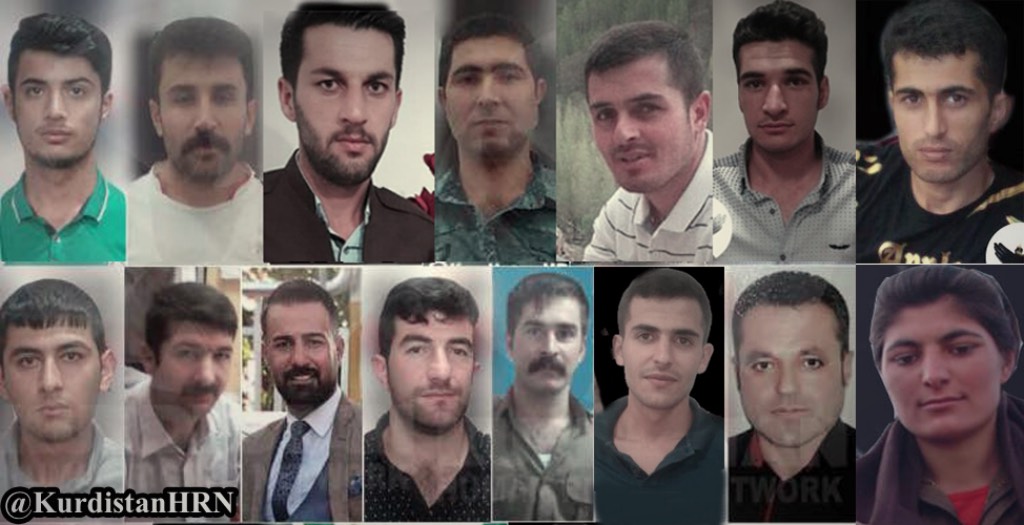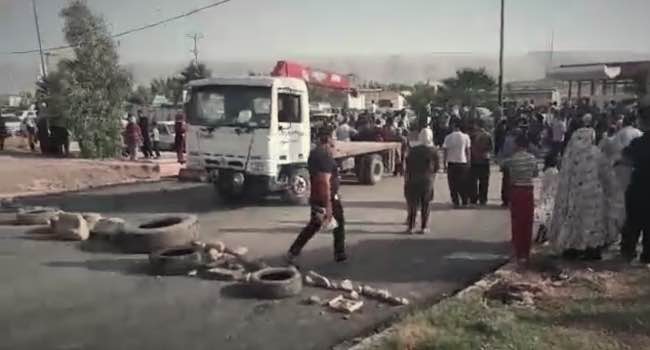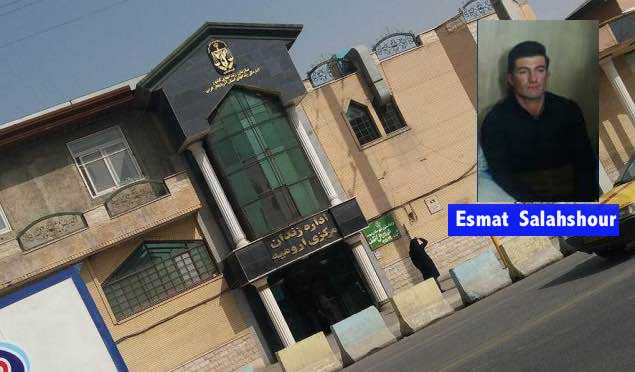Kurdistan Human Rights Network – A strong earthquake (measuring 7.2 magnitudes on Richter scale) hit Kermanshah province on 12 November 2017. This earthquake was so severe that it was felt in almost all of the western provinces of Iran although it’s main source was a city known as Sar-e-Pul Zahab, located in Kermanshah province, adjacent to the Iraqi border. According to official statistics, the devastating consequences of this earthquake included 530 people fatalities, thousands of casualties in addition to 2600 million Tomans of damages to the residential, administrative and infrastructure units.
This catastrophic earthquake attracted the attention of Iranians both inside and outside the country. From the very early hours after the earthquake and the coverage of its news in domestic & foreign media and cyberspace, countless popular donations were sent to earthquake-stricken areas. The deep solidarity of the people with the earthquake victims in the form of cash and non-cash contributions was the hallmark of this devastating catastrophe. Although the amount of contributions from other Kurdish areas was unprecedented in its own way, other Iranians also spontaneously played an important role in sending supplies to these areas.
In addition to the deep and massive solidarity of people with the earthquake victims that led to the world’s sympathy and admiration, the fact that people lacked political trust in the government and its executive agencies also resulted in a lot of discussions and talks. Iranians had previously criticized the government for the widespread embezzlement and corruption in the State’s banking system, the judiciary, national media and etc. But the reaction and criticisms of people in the aftermath of the earthquake showed that people’s distrust towards the executive officials of the country has increased sharply. This trend was clearly observed by political observers and analysts who witnessed the frank and reckless manner in which the governmental institutions were criticised for their irresponsibility by both the earthquake victims and other Iranians in the cyberspace.
The most obvious consequence of people’s distrust in the governmental institutions was that they refused to hand in their donations to the governmental institutions. The main reason for such refusal was to “prevent the governmental institutions from abusing the popular donations” clearly evident in the numerous films, writings, analyses and photos published by the Iranian users in social networks, especially telegrams channels.
In addition to governmental institutions, civil and community institutions directly or indirectly affiliated with the government did not escape the consequences of people’s lack of political distrust. A prominent example of such distrust, extensively reflected in the social media, was Red Crescent (Helal Ahmar) Society as a popular institution. “We contacted with the Red Crescent and we asked them to send two of their agents to help us with distributing goods. We were told that the truck carrying the cargo of popular donations will not be permitted to leave for the earthquake-stricken areas unless all the goods were delivered to the Red Crescent. Of course, we will not deliver the goods to the Red Crescent office no matter what.”, a person called Jassem Shin stated in this regard. “Like all the other Iranians, who have been sending and distributing their cash and non-cash donations by travelling in their own cars to the area, we do not trust the state institutions in any way and we do not want the funds collected by the people to become films and promotional pictures for government institutions.”, he explained the reason for their refusal to hand in their donations to the Red Crescent.
This kind of political distrust was common among the vast majority of Iranians during the aftermath of the recent earthquake. Such distrust was particularly evident in the Kurdish areas of Iran where there were some instances of conflict between the popular forces and members of the Crescent organization. “Following the refusal of people to hand in their donations to the forces of the Red Crescent Organization, this organization established a checkpoint at the outskirts of Kamyaran (Ravansar). The forces of Red Crescent tried to seize the cargo of popular donations from Mukerian city in private vehicle, but Kamyaran locals interfered and the caravans of popular donations were transferred to citizens’ homes. “, Kurdistan Human Rights Network (KHRN) announced in one of its news, for instance. In fact, while the governmental officials and organizations lacked accountability for delivering help to the earthquake victims, people entrusted their donations to the civil, political and social activists including football players, actors/actresses, singers, etc.
Despite the direct involvement of people in assisting the earthquake victims, the governmental institutions still faced great criticisms due to their weak crisis management which led to direct presence of popular forced in the affected areas. “Due to the poor performance of governmental organizations agencies in managing the distribution of relief items, a huge number of people have hurried to the earthquake areas. Therefore, there was a very heavy traffic from Kermanshah to Sar Pul Zahab.”, the ILNA news agency announced in this regard.
In addition to their weakness in crisis management, the governmental institutions were criticised for their dual criterion regarding their intervention or non-intervention in various events. The dual criterion was not based on the necessities resulted from time and space requirements, but it followed the extent that such involvement accorded with short-term and long-term policies of the government. “If the government helps, the schools will be open in a week. But if the government does not help, the schools will not even open for another two or three years.”, a child from Sare-Pol Zahab said. “Money is available but not for the earthquake victims”, a TV sports presenter told Rouge Media Network. Such comments all indicate the government’s inappropriate criteria for its involvement in the events.
But while on the one hand, in the aftermath of the recent earthquake, the necessity of helping the injured was on the priority of the public, and on the other hand, the institutions and government officials lacked legitimacy. These civil, political and social activists, such as football players, actors, readers, and others who were waiting for assistance through the help of the people and the injured. The activists who, by giving their personal account numbers, collected huge amounts of money for the benefit of the injured and, by visiting the affected areas, tried to deliver the donations directly to local groups and activists in these areas.
All the facts indicate that political trust in executive agencies has been severely shaken. If events such as the previous presidential elections and the widespread presence of the people in the elections were interpreted as a choice between “bad” and “worse” by the sovereignty of the people, then the recent earthquake not only seriously suspected such a claim with suspicion but also severely exposed the crisis of legitimacy of the government to the people. The government then should be warned that its legitimacy has been completely questioned. If the participation of people in the past election was contingent in partnership in order to improve Iran’s internal situation, the recent earthquake was an explicit indication of the fragility of Iran’s social, political and economic infrastructures and the huge legitimacy crisis Government with the general public. The legitimacy of the expansion of cyberspace, the pursuit of information and news from various news channels, and the inability of the government to confiscate news exclusively and to interpret it in its own right is rapidly increasing. The distrust of the people in the government and its various institutions indicates that the serious reaction of people against the governments dual policies and programs. As long as these policies are regulated irrespective of the public interest, people will confront the government and its institutions more severely and with increasing distrust.

